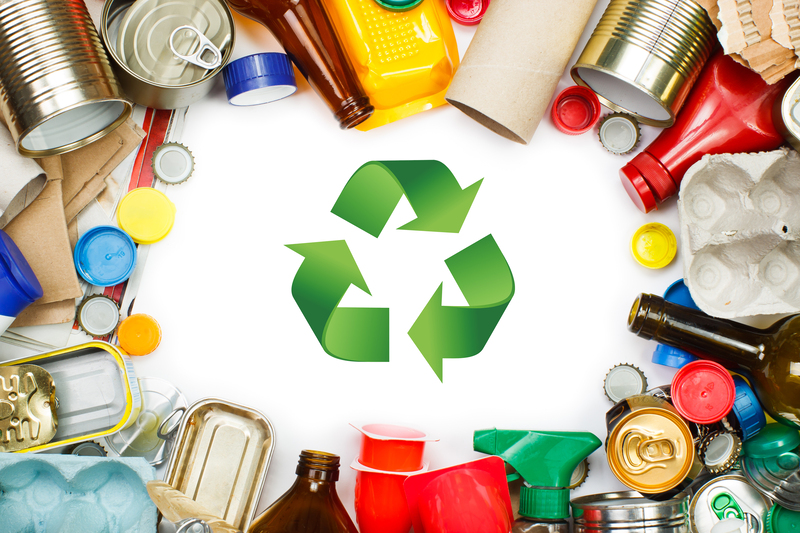Best Practices for Disposing of Damaged Pots and Pans
Every kitchen eventually accumulates cookware that's past its prime--from deeply scratched non-stick skillets to warped stainless steel saucepans and burned-out cast iron pans. Learning the best ways to dispose of damaged pots and pans is not only key to maintaining a functional kitchen but also crucial for environmental responsibility. In this comprehensive guide, we'll explore eco-friendly, practical, and creative solutions for handling worn-out cookware.
Why Proper Disposal of Old Pots and Pans Matters
Throwing old cookware in the trash seems easy, but improper disposal has significant environmental impacts. Most pots and pans are made from metals or have coatings (such as Teflon) that don't decompose in landfills. Releasing these materials into waste streams contributes to pollution and squanders valuable resources.
- Metal Recovery: Most pots and pans contain aluminum, copper, or stainless steel--metals highly recyclable and valuable.
- Reducing Landfill Waste: Cookware can take centuries to decompose and may release toxins if not handled properly.
- Encouraging Circular Economy: Recycling and upcycling damaged cookware helps foster sustainability and resource conservation.

Assessing the Condition of Your Cookware
Before discarding pots and pans, ask yourself: Are they truly beyond repair or repurposing? Sometimes, a little maintenance can give them a new lease on life.
Signs Your Pots and Pans Should Be Disposed Of
- Extensive warping or cracking
- Chipped enamel or coatings
- Peeling or scratched nonstick surfaces
- Corrosion or rust that impacts functionality
- Handles that can't be reattached or stabilized
Consider Repair or Refurbishment First
Cast iron pans can often be rehabilitated with seasoning and rust removal. Handles on some metal cookware can be tightened or replaced. If your cookware is in good shape apart from being discolored, consider restoring it with proper cleaning techniques.
Eco-Friendly Ways to Dispose of Damaged Pots and Pans
1. Recycling Kitchenware Responsibly
Recycling is the most environmentally responsible way of getting rid of damaged or unusable cookware. Since most pots and pans are metal-based, they're prime candidates for recycling, but you must follow local guidelines.
- Contact Your Local Recycling Center: Check if they accept cookware and if any preparation is needed (such as removing plastic handles or lids).
- Sort By Material: Separate aluminum, stainless steel, cast iron, and mixed-material pans. Mixed materials often require special attention.
- Remove Non-Metal Parts: Plastic, wood, or rubber handles and lids should be detached to avoid contamination.
- Drop Off at Scrap Metal Facilities: Even if your curbside program doesn't accept cookware, private scrap metal recycling centers often do.
- Specialty Recycling for Non-Stick Pans: Some centers require Teflon or ceramic coatings to be removed due to processing complications.
Pro Tip: Contact brands or stores--some offer take-back programs, especially for non-stick cookware.
2. Donation: Give Used Cookware a Second Chance
If your cookware is still usable--maybe just a little worn or cosmetically flawed--consider donating it. Many people or charities can benefit from kitchen tools you no longer need.
- Local Thrift Stores: Goodwill, Salvation Army, and local charities often accept used cookware.
- Community Centers: Soup kitchens and shelters might need extra pots and pans.
- Online Giveaways: Use platforms like Freecycle, Buy Nothing groups, Facebook Marketplace, or Craigslist for local distribution.
Always make sure items are clean and in functional condition before donating.
3. Upcycling and Repurposing Cookware Creatively
*Transforming old pots and pans into new, useful, or decorative items is a superb way to keep them out of landfills.* Here are some fun and creative recycling ideas:
- Planters: Use pots as garden planters or herb containers--drill a drainage hole if needed.
- Bird Baths or Feeders: Large pans make excellent bird baths or feeders in your backyard.
- Art Projects: Use lids as wall art, or turn old pans into clocks, chalkboards, or mirrors.
- Storage and Organization: Old saucepans can organize garden tools or be used as nesting containers for household items.
Properly Handling Non-Recyclable Cookware
Not all cookware is recyclable or salvageable. Certain materials like broken glass lids, ceramic pots, or heavily coated nonstick pans may not be accepted by recycling centers. Here's how to deal with these cases:
Disposing of Non-Recyclable Cookware Safely
- Check for Specialized Programs: Some cities offer special drop-off days for non-recyclable household goods.
- Hazardous Waste Disposal: Rarely, some coatings may qualify as hazardous waste--especially if they contain PFOA or other chemicals. Contact local waste management for guidance.
- Landfill as Last Resort: Wrap broken glass securely to avoid injuries, label it, and dispose of it according to your city's trash guidelines.
Key Tips for Disposing of Old Pots and Pans
- Never dispose of cookware with regular recyclables unless confirmed by your recycling provider--they may cause damage to sorting machines.
- Clean off grease and food residue before recycling, donating, or upcycling.
- Participate in brand take-back programs (such as those from GreenPan, Calphalon, or other cookware companies).
- Encourage your community to recycle or repurpose cookware by sharing local resources on social media and with neighbors.
Frequently Asked Questions About Damaged Cookware Disposal
Can I recycle all types of pots and pans?
Most metal cookware is recyclable, but items with non-removable nonstick coatings, glass, or ceramic components may not be accepted. Always check with your local recycling provider for specifics.
What about damaged Teflon pans?
Teflon-coated pans can be trickier to recycle, as some recycling facilities do not accept them due to their coating. Check for specialized collection events or manufacturer take-back programs.
Are there any safety concerns with donating used cookware?
Ensure the items have no sharp or broken edges and are free from peeling coatings or excessive rust. Most charities will not accept cookware that could be unsafe for cooking.
Can cookware be placed in the curbside recycling bin?
Usually, no. Pots and pans should not be placed in most residential single-stream recycling bins due to their size and material composition. Take cookware to scrap metal yards or designated collection points instead.

Sustainable Kitchen Habits: Preventing Future Waste
Disposing of cookware responsibly is important, but making sustainable choices in the kitchen helps minimize future waste. Here's how you can build better habits:
- Invest in High-Quality Cookware: Durable, multi-layer pans last longer and are worth repairing.
- Avoid Cheap Nonstick Cookware: These items wear out quickly and are often harder to recycle.
- Care for Your Cookware: Regular cleaning, proper storage, and avoiding metal utensils will prolong their life.
- Choose Recyclable Materials: Stainless steel, cast iron, and aluminum are widely recyclable compared to coated or ceramic items.
- Buy Used: Thrift shops and online marketplaces offer secondhand cookware at a fraction of the price.
Conclusion: Making the Most of Your Damaged Pots and Pans
The best practices for disposing of damaged pots and pans involve more than simply tossing them in the trash. Whether you recycle, donate, or get creative with upcycling, your choices matter--for your home, your community, and the environment. By choosing eco-friendly disposal methods, you help minimize landfill waste, preserve resources, and make room for better kitchen tools. The next time you find yourself faced with a worn-out frying pan or a warped pot, remember these responsible--and sometimes fun--ways to say goodbye.
Additional Resources
Have you found creative ways to dispose of or repurpose your old cookware? Share your ideas and tips in the comments to inspire others--let's keep our kitchens and our planet clean!